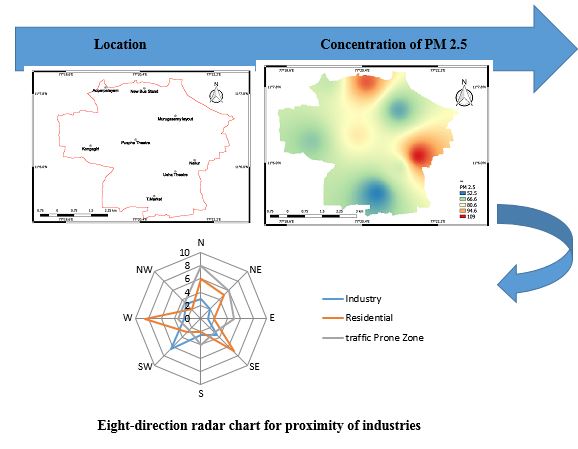- Cite article
- Download PDF
- Share article
- 8 Downloads
Rapid urbanisation, industrialization, and population growth have fostered an urgent need for a green, clean-living environment. Among the many pollutants, gaseous pollutants like NO2, SO2, and particle pollutants like PM 2.5 and PM 10 have a profound negative impact on human health. In this investigation, samples of air pollutants like NO2, SO2, PM 2.5, and PM 10 were taken at ten different sites inside the Tirupur corporation boundaries. For the locations taken into consideration, the Air Quality Index has been calculated using the Central Pollution Control Board's model. Utilizing inverse weighted distance (IDW), these data are interpolated and integrated into a geographic information system (GIS). It was discovered that the level of secondary industries and the density of automobiles had a substantial impact on air quality. Results indicate that PM 10 concentrations in the new bus stop and RakkiyapalayamPirivu are 113.7 mg/m3 and 134.73 mg/m3, respectively, which are comparatively higher than the permitted level specified in IS 5182. The areas with the most vehicular traffic and industry include the new bus stop location and RakkiyapalayamPirivu. Thus, the main sources of pollution in the study region are an increase in automobile traffic and industrial development. A clear indication of the area where the concentration of pollutants is high is provided by integrating the pollutant data with geographic information systems, and this enables local government agencies to conduct in-depth environmental evaluations. This aids planners in their decision-making for sustainable development.
